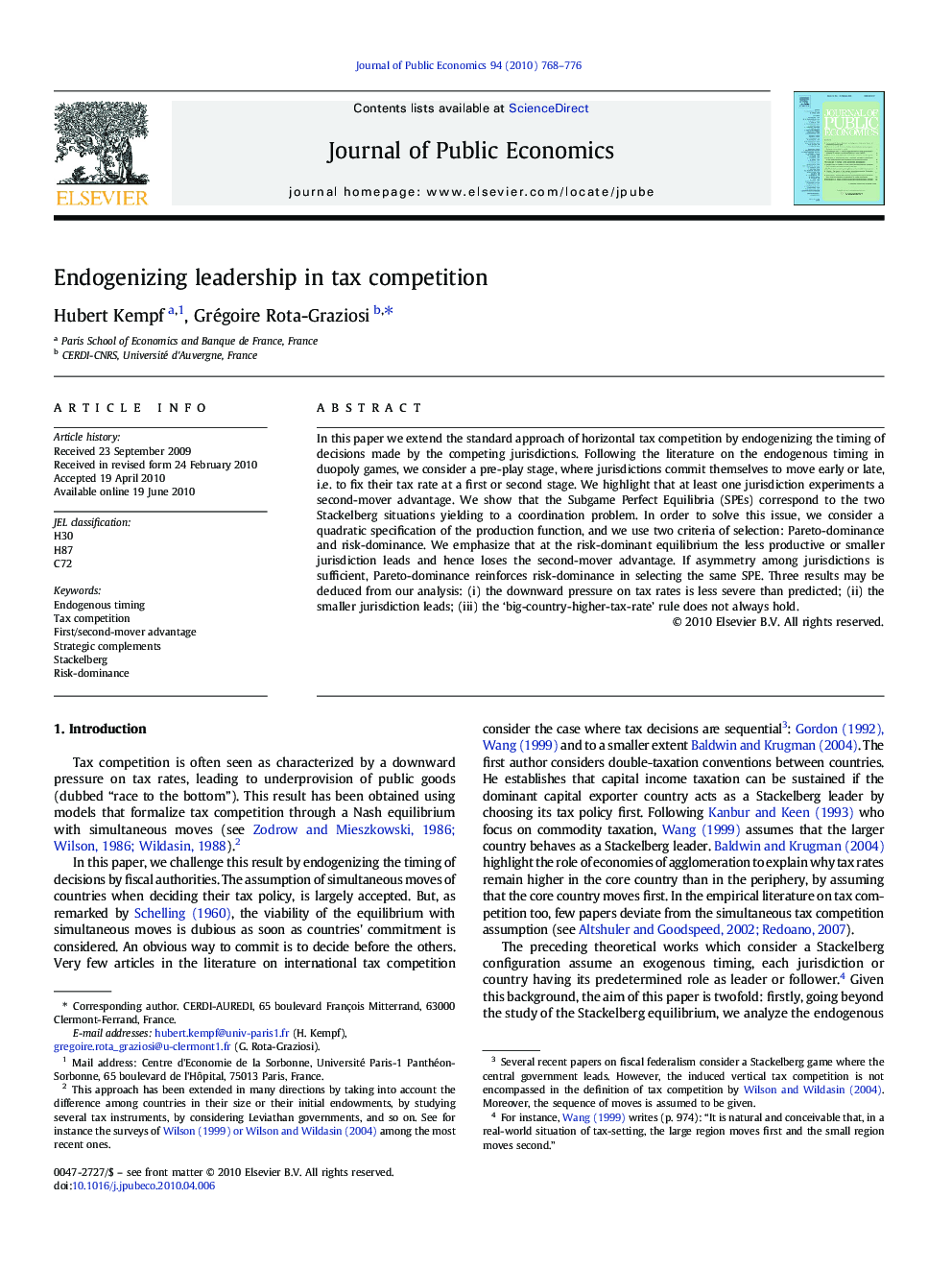| Article ID | Journal | Published Year | Pages | File Type |
|---|---|---|---|---|
| 969416 | Journal of Public Economics | 2010 | 9 Pages |
In this paper we extend the standard approach of horizontal tax competition by endogenizing the timing of decisions made by the competing jurisdictions. Following the literature on the endogenous timing in duopoly games, we consider a pre-play stage, where jurisdictions commit themselves to move early or late, i.e. to fix their tax rate at a first or second stage. We highlight that at least one jurisdiction experiments a second-mover advantage. We show that the Subgame Perfect Equilibria (SPEs) correspond to the two Stackelberg situations yielding to a coordination problem. In order to solve this issue, we consider a quadratic specification of the production function, and we use two criteria of selection: Pareto-dominance and risk-dominance. We emphasize that at the risk-dominant equilibrium the less productive or smaller jurisdiction leads and hence loses the second-mover advantage. If asymmetry among jurisdictions is sufficient, Pareto-dominance reinforces risk-dominance in selecting the same SPE. Three results may be deduced from our analysis: (i) the downward pressure on tax rates is less severe than predicted; (ii) the smaller jurisdiction leads; (iii) the ‘big-country-higher-tax-rate’ rule does not always hold.
